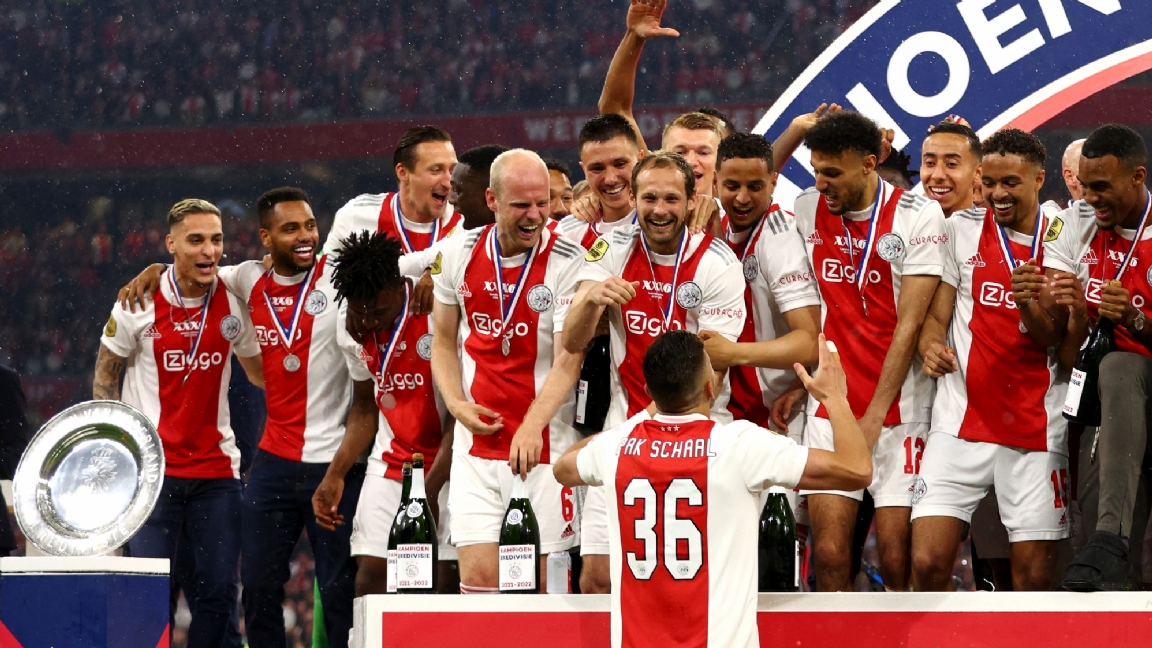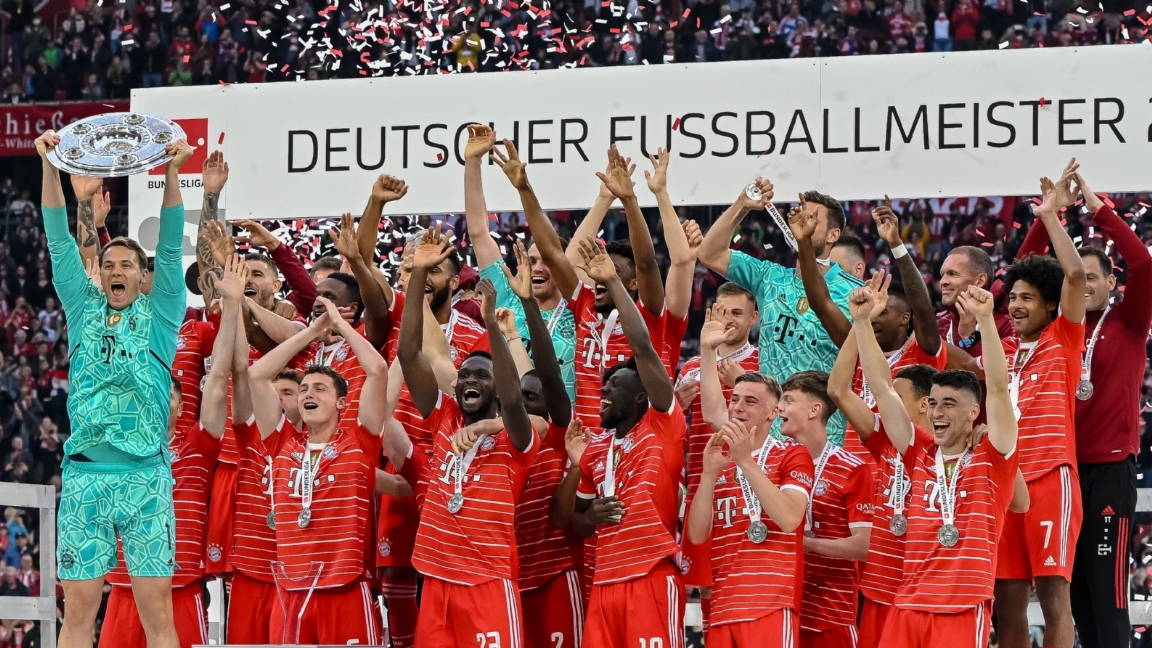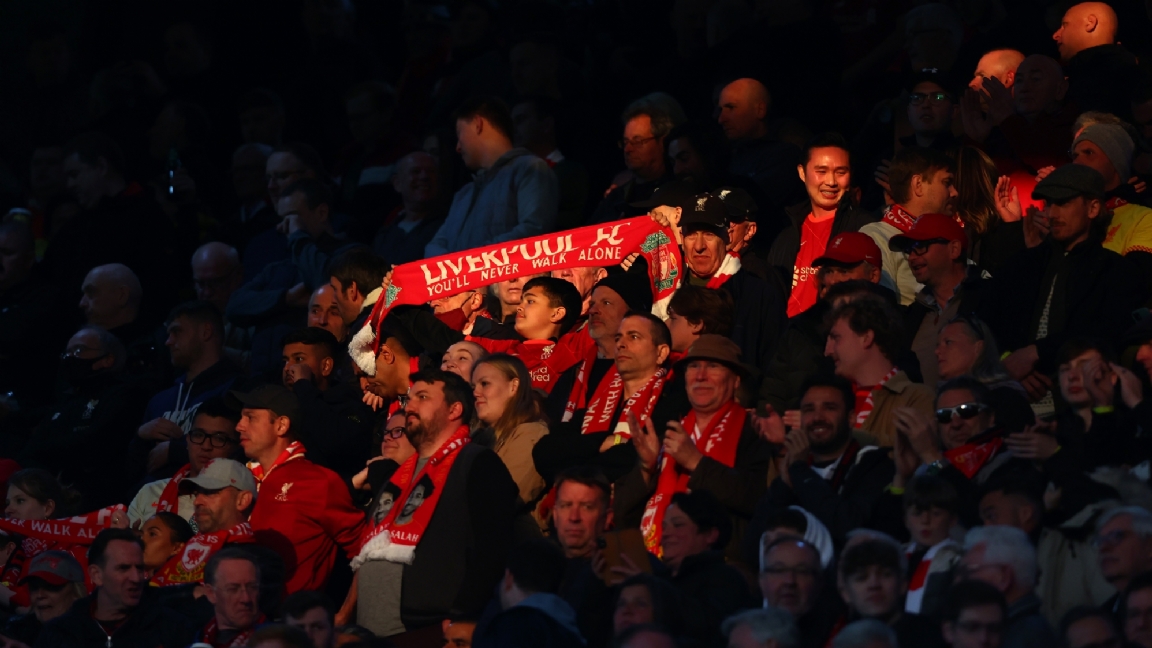![]()

Football in Europe’s top leagues is becoming increasingly predictable, research shows. The researchers analyzed nearly 88,000 games in 11 competitions between the 1993/94 and 2018/19 seasons. This shows that football shows similar phenomena as in a capitalist society: the rich get richer, better and stronger, the less rich run in hope. As a result, those same teams are winning more and more matches. This is accompanied by another, ominous observation for the enthusiasts: the home advantage, for which the public often gets all the praise, is decreasing more and more.
By Kevin Van Buuren
During the recent pandemic, one sound kept reverberating through the silent stadiums: no fans, no football. Renowned ‘home teams’ such as Ajax, Feyenoord and Liverpool proclaimed their twelfth man as man of the match countless times. This would not have been possible without the audience. But, even lower-ranked teams live on home advantage against titan opponents. Only a psychological effect can beat a difference in quality. Home crowd makes football unpredictable. But if this power has less and less effect, will football still be useful in twenty years?
The vicious middle circle
The research team of Taha Yasseri and Victor Martins Maimone looked through a scoring and network model at almost 88,000 matches in Europe between the 1993/94 and 2018/19 seasons in Germany, England, France, Italy, the Netherlands, Portugal, Scotland and Spain, among others. . Their conclusion: “The rich competitions are increasingly won by successful teams. The strong teams win more, can therefore invest more in new reinforcements and thus gradually increase the inequality between teams in the same competition.” In the Netherlands, too, there has been a fear for some time that Ajax, in view of the accumulated capital in recent years, will become the Bayern Munich of the Eredivisie. The German Rekordmeister won the league title for the tenth time in a row this year. Ajax is now at three, before it once held the scale four times in a row.

After ten championships in a row for Bayern, the German Bundesliga can gradually be called predictable.
After ten championships in a row for Bayern, the German Bundesliga can gradually be called predictable. According to the researchers, the football world thus exhibits similar phenomena to the ‘real’ world. The rich get richer and invest in factors that give them even more advantage. As a result, the gap between rich and poor is growing. Exceptions are also becoming less common for this reason. Just like the exception that the home advantage can bring. The researchers conclude that this advantage disappears as inequality grows: “Football is changing: it is more predictable, inequality between teams is growing and home advantage is consistently decreasing across all teams in the analyzed leagues.”
Far from home
The researchers based their results on two simple data: ‘Who will win, the home or away team?’ In addition, a scoring and network system gave them information about how well the two teams were doing at the time. Their mutual matches, the number of points they had in the competition so far and their home or away reputation determined the probability of a possible win. Draws were not included in the survey results.
For a definition of home advantage, the team looked to a previous study by Richard Pollard on this phenomenon. Pollard bases this on the following factors: effect of the public; effect of a (long) journey; getting used to the field; the home whistler (Pollard’s research shows that home teams often gain advantage in decisions); territoriality; special tactics; psychological factors; and the interaction between two or more of these factors.
The results show that the home or away factor has less and less effect over the years. Competitions are increasingly decided on the basis of status and wealth. Big clubs win more matches, whether they play at home or away. The researchers argue that globalization plays an important role here: teams are increasingly housing foreign players. In addition, football is more accessible, which means that fewer (real) fans visit matches. Traveling is more comfortable and players have more international experience, making them less likely to be impressed by other conditions. What the research does not mention by name, but could also be a factor, is that the quality of football, player guidance and facilities have improved and are less separated within competitions.

Clubs like Liverpool are known for the effect of their home crowd, but for how long?
Shortcomings of the study
The researchers themselves indicate that their research is not flawless. Although the trend shows that successful teams are becoming more and more successful, they have not explored the direct influence of money in removing the element of surprise. In any case, not all possible data that is currently registered was used to collect the data. “These methods are very data-intensive and not easy to use in a historical context, where such datasets are not available for past competitions,” the statement reads.
Another shortcoming that is not clearly stated is the fact that this research is purely results-oriented. The experience of the matches is not included in this. That while the research states that it examines predictability, because unpredictability fun factor of football. As an example we look at Ajax’s victories against SC Cambuur and RKC Waalwijk this year. The result against the low flyers is ‘six points for Ajax’. Predictable. But whoever saw the matches, where Ajax seemed to lose points twice and still managed to win in the absolute final phase, will have been on the edge of his or her seat. unpredictable.
The researchers still mention the sample size, although it seemed reasonable with 88,000 matches over eleven competitions. “Football is played in 200 countries, of which only 5.5 percent is covered in our research,” they explain. Nevertheless, this study can be considered quite representative of predictability in European football. “For future research,” the team judges, “continental tournaments such as the UEFA Champions League should also be included, as well as matches outside Europe. Finally, it should be tested whether money has an impact on predictability in other sports and competitions. For example, leagues that set a salary cap on their teams, such as the NBA (the national men’s basketball league in the United States.”